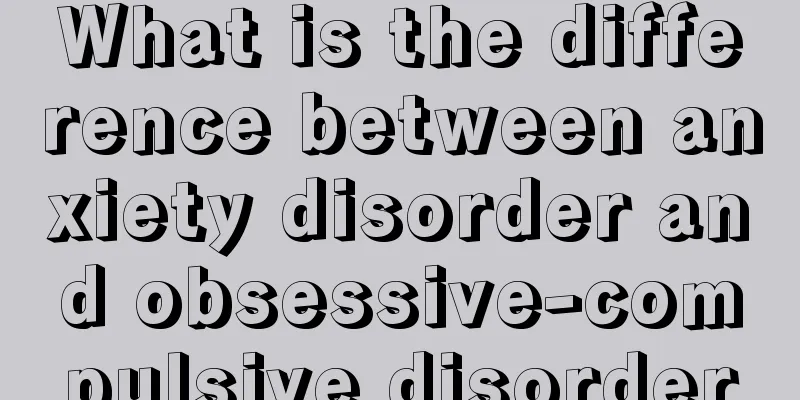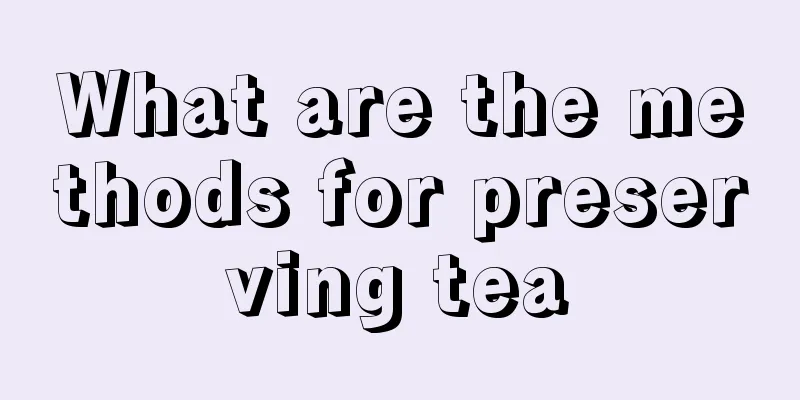What is the difference between anxiety disorder and obsessive-compulsive disorder

|
Anxiety disorder and obsessive-compulsive disorder are both common psychological illnesses among modern people. However, many people cannot tell whether they are suffering from anxiety disorder or obsessive-compulsive disorder, and some people even mistakenly believe that they are the same disease. In fact, this view is wrong, because there is a big difference between anxiety disorder and obsessive-compulsive disorder. Only by clearly distinguishing between anxiety disorder and obsessive-compulsive disorder can we take the correct approach to treat these two diseases. Now let me tell you the difference between anxiety disorder and obsessive-compulsive disorder. Obsessive-compulsive disorder, also known as obsessive-compulsive neurosis, is a recurring pattern of thoughts and intentions that patients know are meaningless and unnecessary, but are unable to get rid of them subjectively. Its manifestations are varied. When a person performs meaningless actions, such as repeatedly checking whether the door is closed and locked; often suspecting contamination and repeatedly washing hands; repeatedly recalling or thinking about some unnecessary problems; having uncontrollable opposing thoughts, worrying that his loved ones will suffer unexpected disasters due to his own carelessness; lacking the proper sense of satisfaction for what has been done. Anxiety disorder is not obsessive-compulsive disorder, but a neurosis with paroxysmal or persistent anxiety and tension as the main clinical phase. It is often accompanied by obvious physical symptoms such as dizziness, chest tightness, palpitations, dyspnea, dry mouth, frequent urination, sweating, tremors and movement restlessness. The degree of tension or panic does not match the actual situation. The symptoms of anxiety disorder are mainly reflected in the fear and threat of uncertainty about the future. This is a special reaction to objective existence. Isn't there such an idiom, called "worrying about the future", which is an obvious reaction of anxiety disorder, a threat to future things. So there is a connection between obsessive-compulsive disorder and anxiety disorder, but more of the difference is in the symptoms! People with anxiety disorders are overly anxious and worried about many things (work or school), and the time they worry is longer than when they are not worried, and it lasts for at least 6 months. If you have had 3 or more of the following symptoms in the past 6 months, you may have an anxiety disorder: feeling restless and impatient; easily fatigued; having difficulty concentrating on one thing, or your mind goes blank; irritable; muscle tension; sleeping disorders: difficulty falling asleep, restless sleep, dissatisfaction with sleep, etc. I believe that after reading the above, everyone knows how to distinguish between anxiety disorder and obsessive-compulsive disorder. Due to the high pressure of life and hard work, modern people will inevitably suffer from anxiety or obsessive-compulsive disorder. However, if we face life correctly and maintain a positive and optimistic attitude towards life, we can get rid of the troubles of these two diseases. |
<<: What is the cause of vertigo
>>: Exercises to reduce belly fat at night
Recommend
The difference between ugly orange and tangerine
Ugly orange, as a type of orange, is actually mor...
Why do I sweat more than before?
Sweating more than before may be due to yang defi...
What are the symptoms of deficiency of both heart and spleen?
Nowadays, with the development of society, people...
Don't take a bath with water that is too hot, you know?
When it comes to night, after a day of work, my b...
There is a secret to diet therapy for gallbladder tumors
In today's society, the treatment of gallblad...
What are the treatments for muscle spasms
Muscle spasm is what we usually call muscle cramp...
What can a barium meal test reveal? Can a barium meal test reveal stomach cancer?
Gastric cancer is also called gastric adenocarcin...
Clinical manifestations of cardiac tamponade
The heart is the most central organ in the human ...
Methods to promote calcium absorption
Everyone knows. Calcium in the human body is the ...
Can alcohol remove oil stains?
In our daily lives, it is easy to dirty our cloth...
Why do fingernails break easily?
Hands are a very important part of our body. With...
What is the mediastinal lymph node
Mediastinal lymph nodes are a clinical infectious...
Recurrence of skin cancer
Skin cancer recurrence is very common in clinical...
Advantages and disadvantages of natural latex pillows
Pillows are very important to us. A good pillow h...
How to make bananas ripen quickly
Bananas have high nutritional value, the flesh of...









